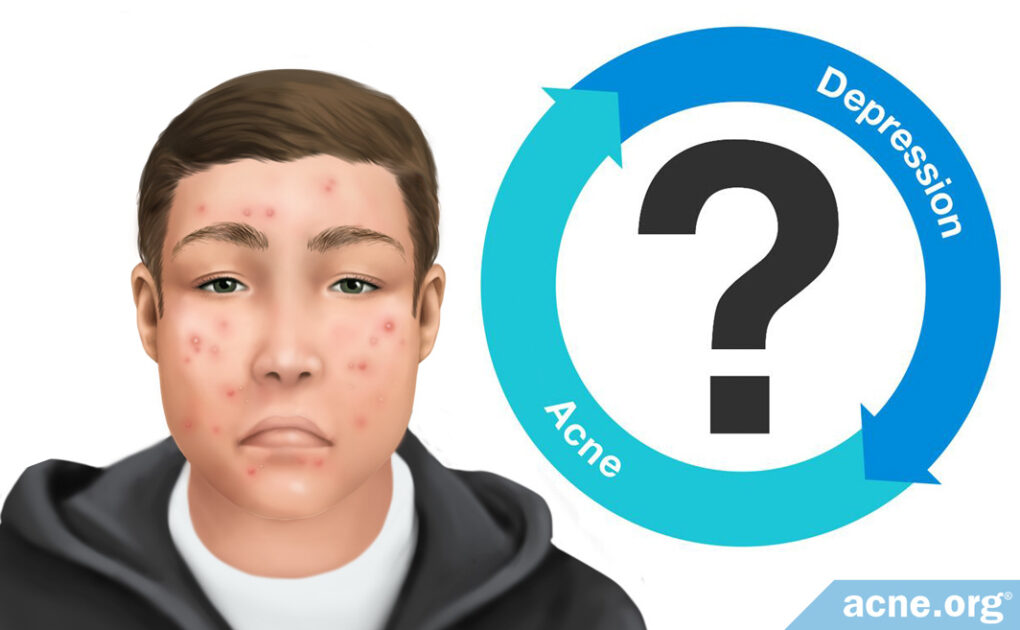There Is a Correlation Between Acne and Depression

The Essential Info
Acne has negative effects on mental well-being, and clearing up acne makes people feel better. That much is known.
But what about depression? Research shows us that acne and depression often occur together, which means they are “correlated,” but there is not a clear cause-and-effect relationship. This means that acne does not necessarily cause depression, or vice versa.
However, there is evidence that each condition can affect the other: acne may worsen depression, and depression may worsen acne.

The Science
- Acne and Depression are Correlated
- Depression Sometimes Accompanies Acne
- Acne Sometimes Accompanies Depression
- What Does the Research Say About the Relationship Between Acne and Depression?
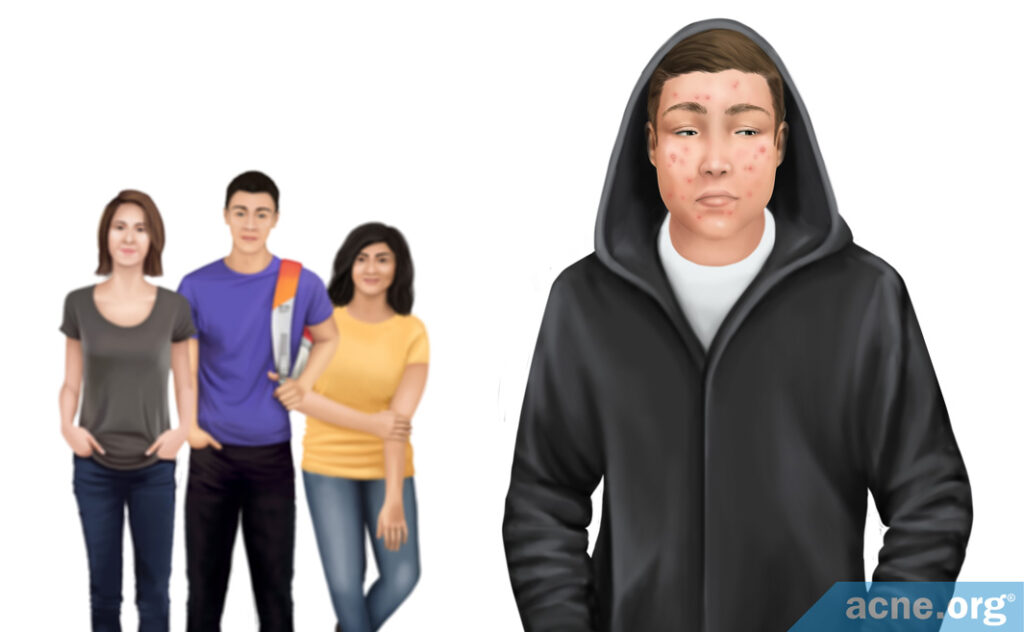
Many people who get acne experience a reduction in self-esteem. Acne can make people feel a range of emotions, including frustration, sadness, and anger. This is well known.
However, in this article we will look at the relationship between, particularly, acne and depression, which is a mood disorder that comes with feelings of sadness and a general loss of interest that persists over time.
Let’s take a deep dive and look at all of the research we have on whether acne causes depression and, conversely, whether depression causes acne.
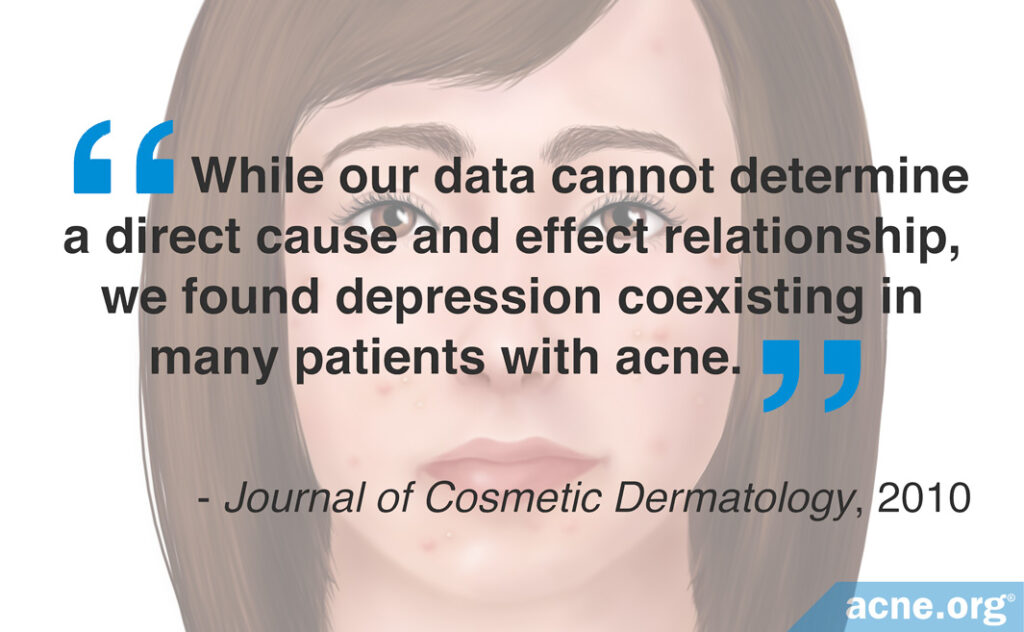
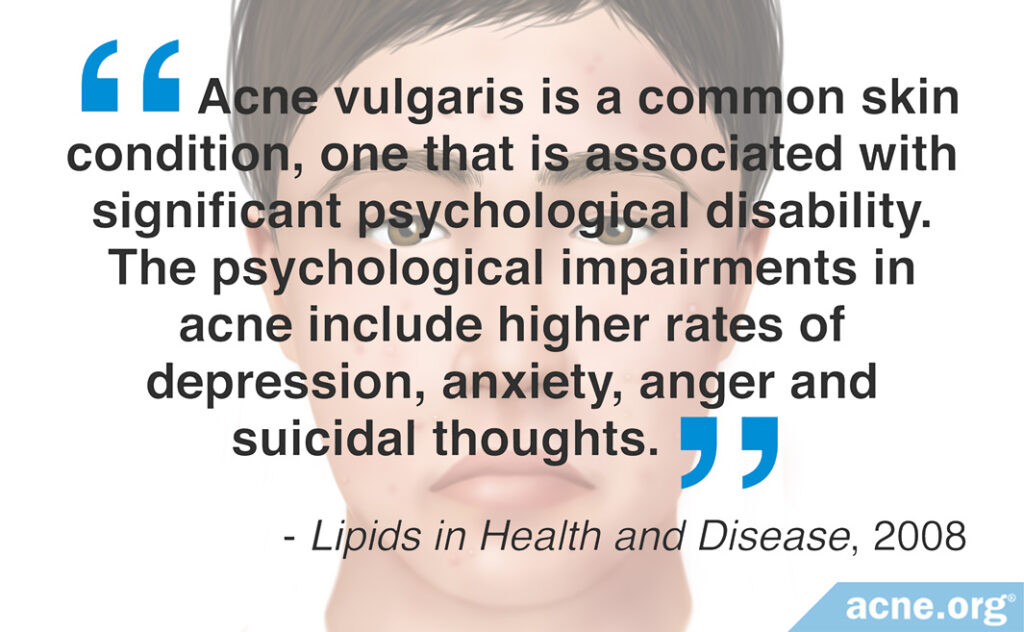
Acne and Depression are Correlated
Acne and depression often occur together, and most research agrees that there is an association between them. However, the available evidence indicates that there is no clear cause-and-effect relationship between these two conditions, meaning that neither condition clearly causes the other.1-6
When two conditions co-occur, but we cannot determine such a relationship, we say that there is a correlation between them. This simply means that there is an association, but that it does not imply causality. As a 2010 article in the Journal of Cosmetic Dermatology stated,
“While our data cannot determine a direct cause and effect relationship, we found depression coexisting in many patients with acne.”4
Depression Sometimes Accompanies Acne
Although acne is a physical disease, it can result in significant psychological distress and is correlated with depression.1,7-14
The best evidence we have for the association between acne and depression comes from a so-called meta-analysis published in the Journal of the American Academy of Dermatology in 2020. This type of study looks at all the research published to date, compiles all the data, and then uses statistical methods to try to answer the question—in this case, whether acne and depression are correlated. After going through 42 studies, the researchers concluded that acne correlates with depression and anxiety—in other words, people with acne have a higher incidence of depression and anxiety than people without acne. Interestingly, the association between acne and depression seems to be stronger for adults than for teens. However, the authors of the meta-analysis noted that the studies they looked at had used different criteria for diagnosing depression, making it difficult to draw deeper conclusions about the connection between acne and depression.7
If you are curious to know more about those 42 studies, expand the section below to take a look at excerpts from some of them.
Expand to read details of studies
Acne Sometimes Accompanies Depression
On the flip side of the coin, people who are depressed often have acne.
Nobody likes having acne. However, depression can worsen these negative feelings, as was indicated by two separate studies.2,6
Expand to read details of studies
People often report that stress, including depression, triggers acne flares. If depression caused the acne flare, then we would expect that treating the depression would also treat the acne. However, this is not the case. In fact, some acne patients complain that their acne becomes worse when being treated for depression, and acne is listed as a possible side effect of some antidepressants, including Zoloft® and Wellbutrin®.14
Therefore, from the research we currently have available, even though depression can worsen the psychological impact of acne, it is not known to cause acne.
What Does the Research Say About the Relationship Between Acne and Depression?
The majority of the research indicates a correlation between acne and depression, though different studies reached different conclusions about the nature of that correlation.
Some studies indicate that people with acne report more depression:15-17
Expand to read details of studies
Some studies indicate that treating acne appears to improve the depression:18-21
Expand to read details of studies
One study indicates that people with depression are more likely to have acne:
A 2002 study in Dermatology and Psychosomatics found that participants who reported depressive symptoms are more likely to develop acne.22
One study indicates that more severe acne correlates with more severe depression:
A 2011 study in the Journal of Investigative Dermatology evaluated the relationship between acne severity and suicidal thoughts in teenagers. This study found that teens with more acne reported suicidal thoughts about twice as often as teens with little or no acne.23
One study indicates that the severity of acne is not related to the severity of depression:
A 2004 study in the Journal of the European Academy of Dermatology and Venereology found that depression was significantly more common in acne patients than in those without acne but that the presence of depression was unrelated to the severity of acne. In other words, the presence of acne raised the risk of depression, but whether the acne was mild or severe made no difference.24
One study indicates a reciprocal (two-way) relationship between acne and depression:
A 2015 study in Cell Biochemistry and Biophysics investigated the link between acne and psychological well-being. This study found a reciprocal relationship between acne and psychological distress: greater anxiety or depression was associated with more acne, and acne was associated with greater levels of anxiety or depression.25
And while most studies found a correlation between acne and depression, a few studies observed the opposite:26-30
Expand to read details of studies
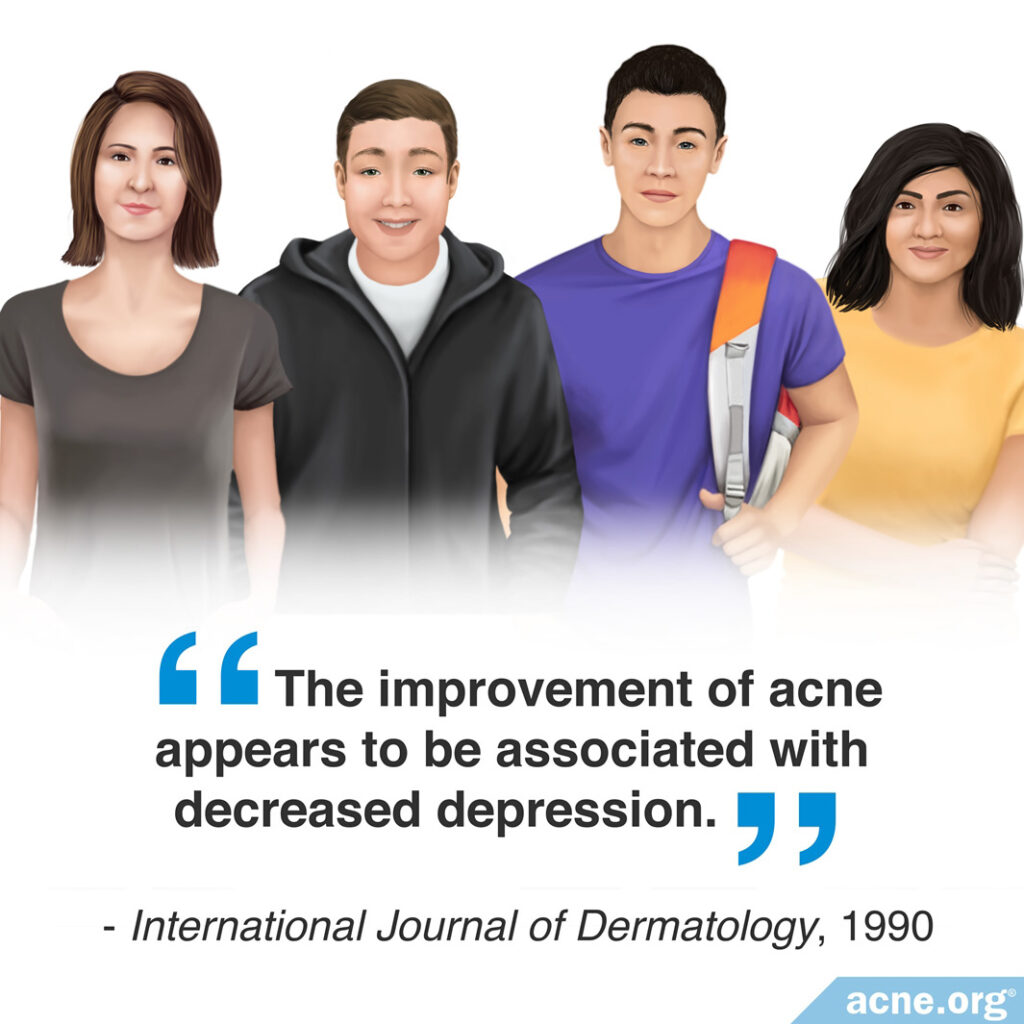
A word of caution: We cannot draw conclusions from these studies. Taken all together, the research to date indicates not only that there is a correlation between acne and depression but that this relationship is reciprocal. This means that acne can affect depression, and depression can impact acne.
However, it is important to note that the majority of studies conducted thus far concerning the relationship between acne and depression pose significant problems that limit our ability to draw conclusions.
Most studies used minimally rigorous study-designs, such as case reports and case-control surveys, rather than rigorous designs, such as randomized controlled trials.
The data in case reports and in case-control surveys can be suspect, partly because:
- Most studies relied on self-reported data, such as surveys and questionnaires, rather than on a professional’s diagnosis to determine the presence and severity of both acne and depression.
- Many studies included only a small number of participants, did not include control groups to compare with the acne groups, and did not take into account other factors, such as acne severity and personal or family history of depression.4
Because of these methodological problems, we cannot draw conclusions based on the existing research about the nature of the relationship between acne and depression. We can conclude only that a correlation between the two conditions appears to exist.
However, on a real-world level, clearing up acne is helpful to one’s mental state, and we don’t need studies to tell us that.
